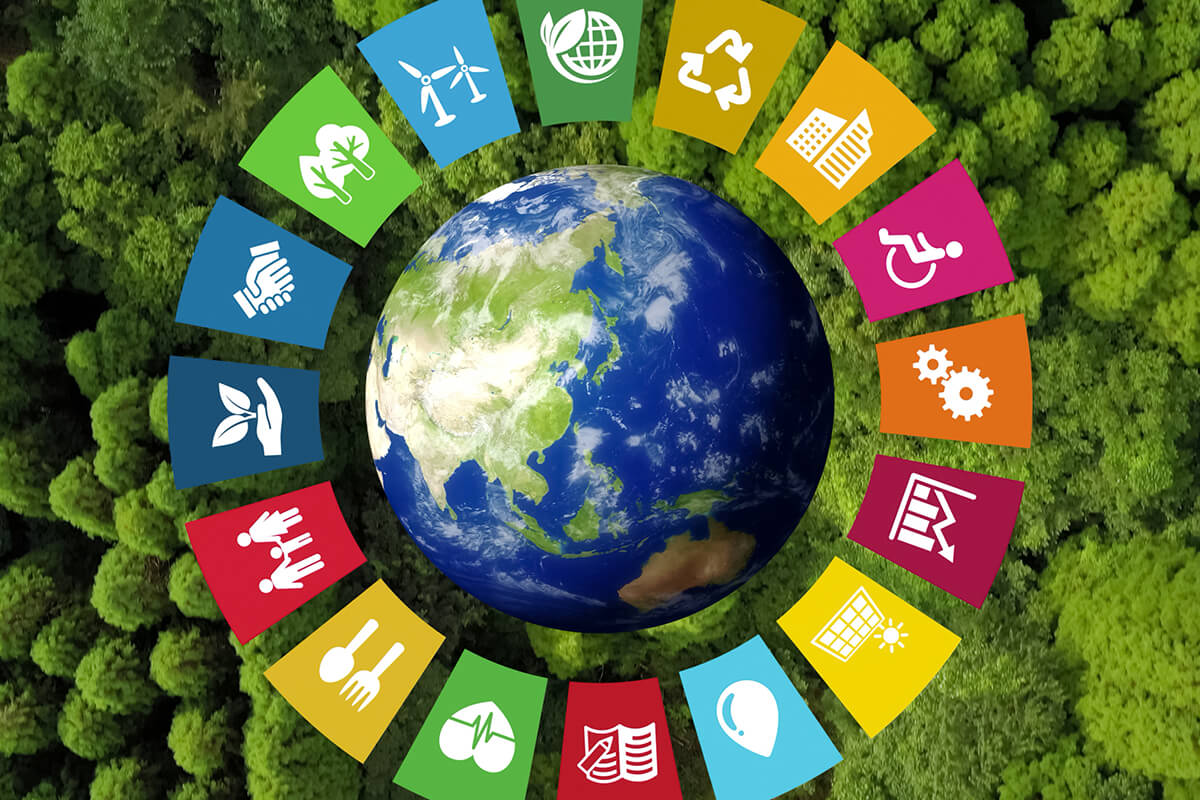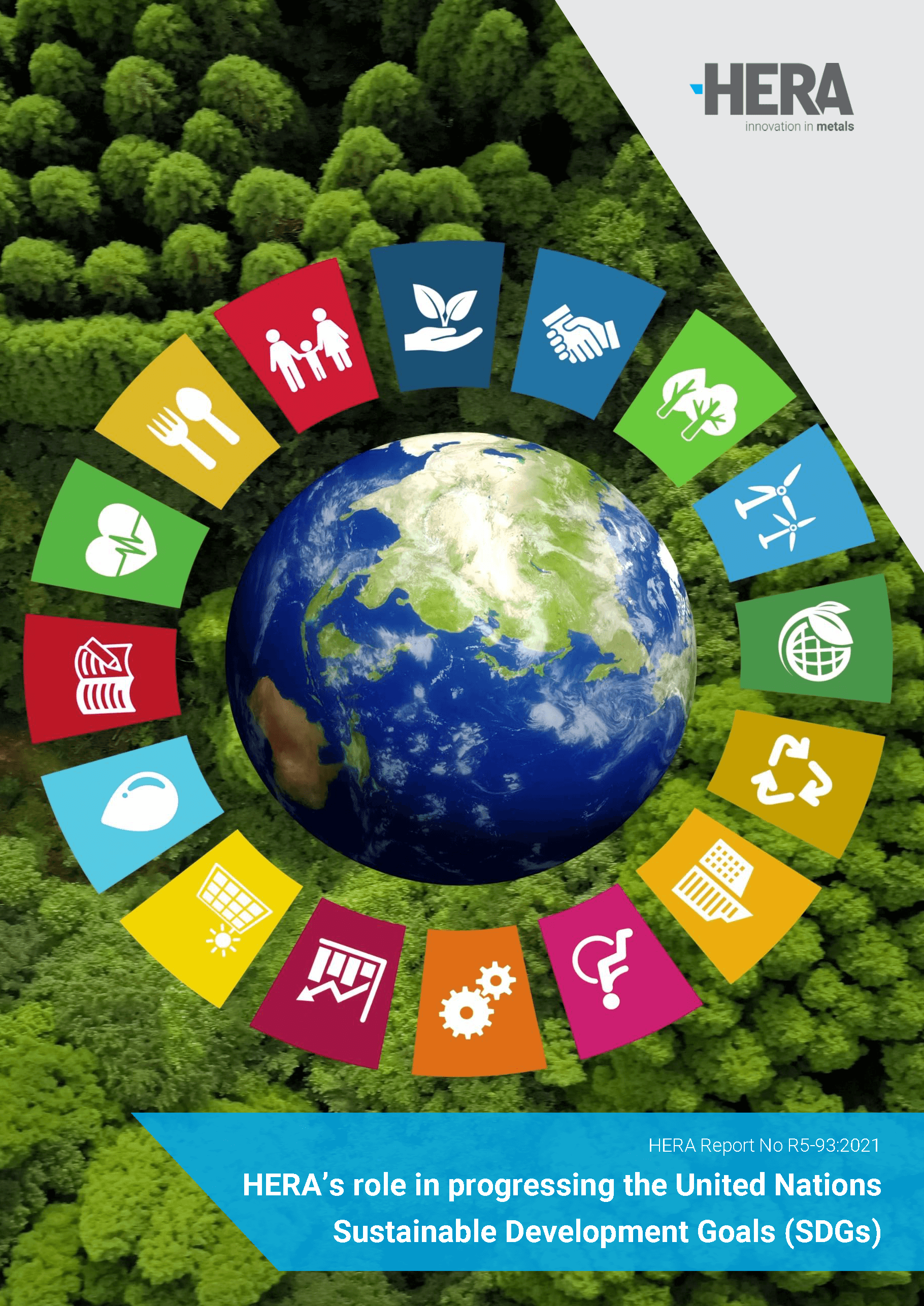A wero (challenge) that HERA has recently taken up, is to view our work through the lens of the United Nations Sustainable Development Goals (UN SDGs).
The output of this review was a report authored by International Institute of Welding (IIW) Fellow, Chris Smallbone; and our CEO, Troy Coyle; which assessed the initiatives HERA has undertaken to achieve sustainable heavy engineering.
This looked at our work in education, training, qualification and certification of personnel to both national and international standards, assisting companies to meet customer needs, research and development initiatives, technology transfer, and similar.

What was found is that there are many examples of heavy engineering initiatives that have been executed that have direct correlation to the SDGs. Some examples for HERA are the improvement of national welding capability and our relationship with national and international networks, such as the IIW, which enable us to collaborate to progress the SDGs collectively.
This work has also highlighted how the SDGs align with other key initiatives that both HERA and our industry support. This includes:
- the Living Standards Framework and our commitment to be the first industry in Aotearoa to assess the economic contribution of the metals industry against it;
- honouring Te Tiriti o Waitangi (Treaty of Waitangi) through our works in Mātauranga Māori (Māori knowledge); and
- sustainability across its many facets.
It also represents an opportunity for our members within the metals industry to also assess their works against these goals to demonstrate their commitment to this agenda.
Understanding the SDGs
The United Nations Sustainable Development Goals (SDGs) are at the heart of a call to action to end poverty, protect the planet, and ensure that by 2030 all people enjoy peace and prosperity.
These goals were adopted by the 193 member states of the United Nations in September 2015 – including Aotearoa, New Zealand, which currently ranks 23rd out of 165 countries reporting under this agenda. The New Zealand Government’s latest outputs in relation to the SDGs was the release of “He Waka Eke Noa, Towards a Better Future, Together. New Zealand’s Progress Towards the SDGs” report in 2019. To date, the SDGs continue to be a focus for the Government through domestic action, global policy influence, aid investment, and partnerships to support priority targets.
The SDGs (also known as the Global Goals) are 17 integrated goals that recognise that action in one area will affect outcomes in others – and that development must balance social, economic and environmental sustainability.
The 17 goals are:
- No poverty – end poverty in all its forms everywhere.
- Zero hunger – end hunger, achieve food security and improved nutrition and promote sustainable agriculture.
- Good health and well-being – ensuring healthy lives and promote well-being for all at all ages.
- Quality education – ensure inclusive and equitable quality education and promote lifelong learning opportunities for all.
- Gender equality – achieve gender equality and empower all women and girls.
- Clean water and sanitation – ensure availability and sustainable management of water and sanitation for all.
- Affordable and clean energy – ensure access to affordable, reliable, sustainable and modern energy for all.
- Decent work and economic growth – promote sustained, inclusive and sustainable economic growth, full and productive employment and decent work for all.
- Industry, innovation and infrastructure – build resilient infrastructure, promote inclusive and sustainable industrialisation and foster innovation.
- Reduced inequalities – reduce inequality within and among countries.
- Sustainable cities and communities – make cities and human settlements inclusive, safe, resilient and sustainable.
- Responsible consumption and production – ensure sustainable consumption and production patterns.
- Climate action – take urgent action to combat climate change and its impacts.
- Life below water – conserve and sustainably use the oceans, seas, and marine resources for sustainable development.
- Life on land – protect, restore and promote sustainable use of terrestrial ecosystems, sustainably manage forests, combat desertification, and halt and reverse land degradation, and halt biodiversity loss.
- Peace, justice and strong institutions – promote peaceful and inclusive societies for sustainable development, provide access to justice for all and build effective, accountable and inclusive institutions at all levels.
- Partnerships for the goals – strengthen the means of implementation and revitalise the global partnership for sustainable development.
What does this mean for our members and the wider steel industry?
The SDGs are not just the responsibility of the United Nations countries to take up. All companies can contribute to the Sustainable Development Goals to make positive change globally – regardless of size or industry that they serve.
You can do this by first doing business responsibly and then, by pursuing opportunities to solve societal challenges through business innovation and collaboration.
We hope this report will serve as an example or case study for our members to similarly review their works against the SDGs. This is a great way to demonstrate your commitments to sustainability.
It also is a good gateway to understand how technology, Industry 4.0 and other innovations within your business can play a bigger role than simply productivity improvements.
Sustainability, innovation and Industry 4.0 are all areas that HERA has a number of support services available to our membership.
Want to know more?
For further information, we also recommend reviewing the full Sustainable Development Report 2021, as well as the global SDG index and country reports which can be found here.
Update shared by our CEO, Troy Coyle
